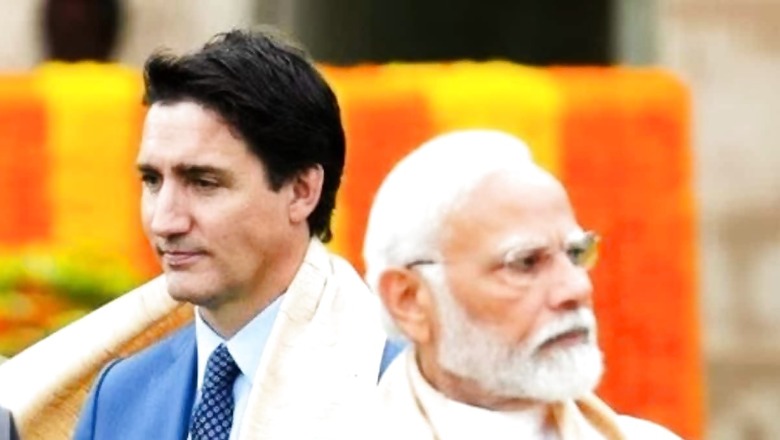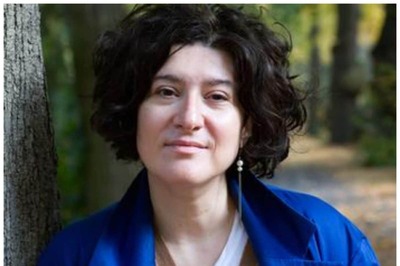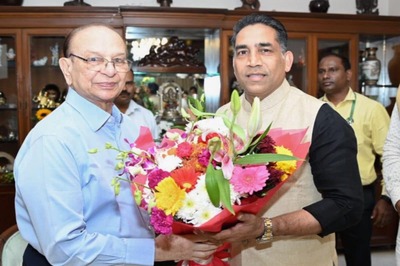
views
Several ministers and partners of Justin Trudeau’s government in Canada have links with Khalistani elements, said strategic affairs expert and security analyst Chris Blackburn in an exclusive conversation with CNN-News18 on Thursday against the backdrop of a snowballing diplomatic face-off between New Delhi and Ottawa.
Trudeau must substantiate his allegations linking a Khalistani terrorist’s killing in his country with the “agents of the Government of India", said Blackburn.
Hardeep Singh Nijjar was gunned down outside a gurdwara in the Punjabi-dominated Surrey city of Canada’s British Columbia province by two unidentified bike-borne assailants in June.
Canada’s security agencies were humiliated after the government inquiry into the 1985 Air India flight bombing and have dragged their feet on tackling Khalistani gangs and terrorism, Blackburn said.
“We know through the investigations of the NIA in India that Khalistanis in Canada are using the country for propaganda, they’re using it for finance, and they’re also using it for terrorist actions," the British analyst told CNN-News18.
The Canadian opposition itself has asked Trudeau to provide proof to substantiate his allegations against India, which is fast becoming strategically important for global security, he pointed out.
“I also think the reaction of the Australian Prime Minister, whose country is also a joint participant in the Five Eyes alliance…he basically brushed off the allegations and that’s quite telling. So I think the Canadians are either bluffing, which would be a hugely risky strategy, or they may have something but they need to put it out there," Blackburn said.
Trudeau, who faces flagging popularity in his own country, is also smarting from a disastrous India trip during the recent G20 summit, when he felt he got the cold shoulder from New Delhi and also had to encounter embarrassments like his aircraft refusing to fly him back home.
“India doesn’t want to return to the 1980s levels when violence was ripping the country apart," Blackburn said. “But what we’ve seen during the global war on terrorism, Khalistani activism was simmering away, building bigger, and now I think the focus is sort of on Islamist terrorism in the West, and we are seeing the propaganda campaigns are starting to bear fruit. We’ve seen the attack on the Indian high commission. So I think the Western powers themselves know this is a concern for India, and I think they are trying to deal with it. That’s the positive thing. But I think the Canadians are digging their heels in."
There are close to 1.4 to 1.8 million Canadians of Indian origin, and Canada has the largest population of Sikhs outside Punjab.
“India has been saying over the last decade that Canada has been harbouring terrorist groups and we would like to see at least some kind of action on that," said the analyst. “We saw all through the global war on terror, people who have done horrendous things, getting harbour and shelter within Commonwealth countries, and then them basically saying we can’t imprison them, we can’t go after them, or extradite them because it’s free expression. That’s a very dangerous sort of precedent."
If Canada cannot address the concerns of a partner country in an alliance, then it may be internationally seen as a weak link, he said.
“I don’t think in the Indo-Pacific there will be any changes whatsoever. I think even Canada or even its ministry of defence will partner with India and others to counter the Chinese threat," he said. “I think, on the domestic terrorism front, Canada has been shown to not be subscribing to international and global concerns of India and other nations."
A lot of G7 and Five Eyes nations are taking a hard-headed look at the India-Canada row, said Blackburn. “If you look at the statements, there’s no real condemnation. They just want a fair investigation. Obviously, they will support Canada up to a certain point, but there’s never been any real evidence," he said.




















Comments
0 comment